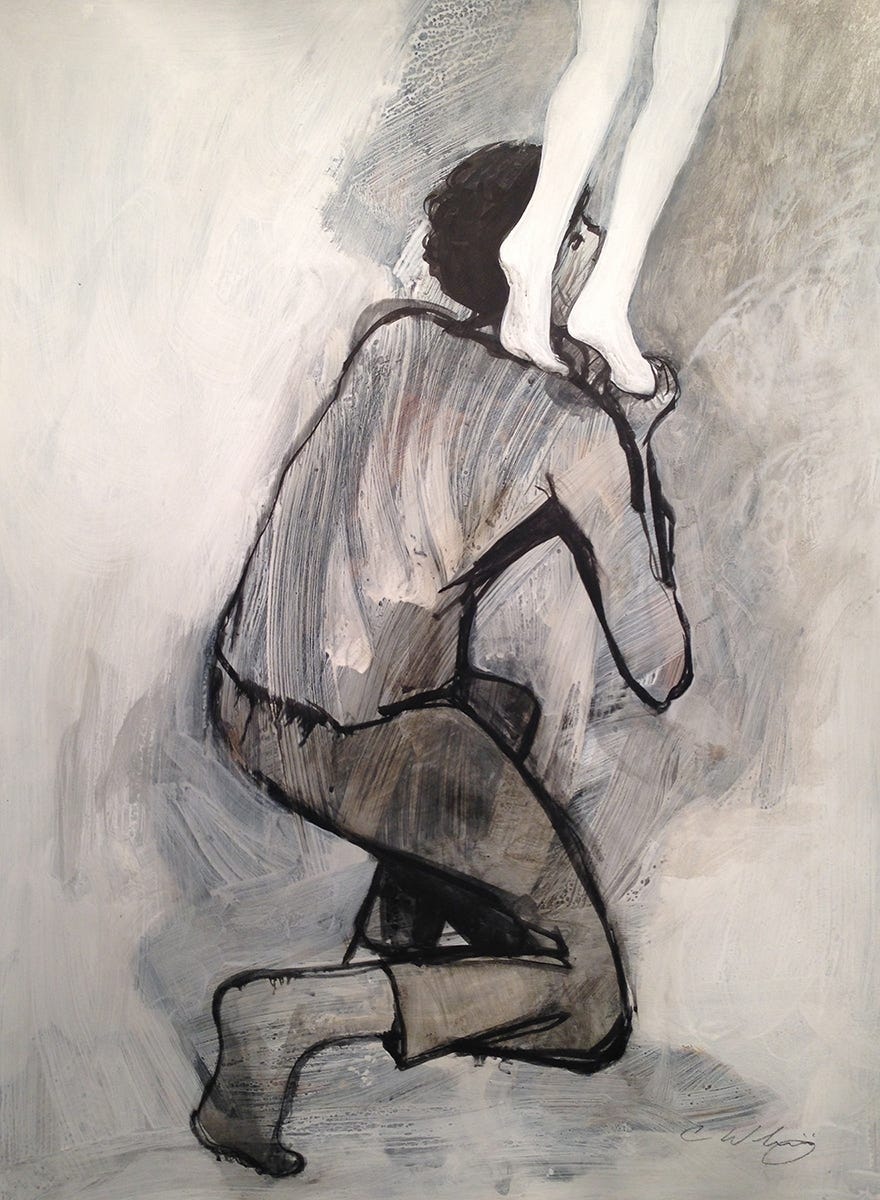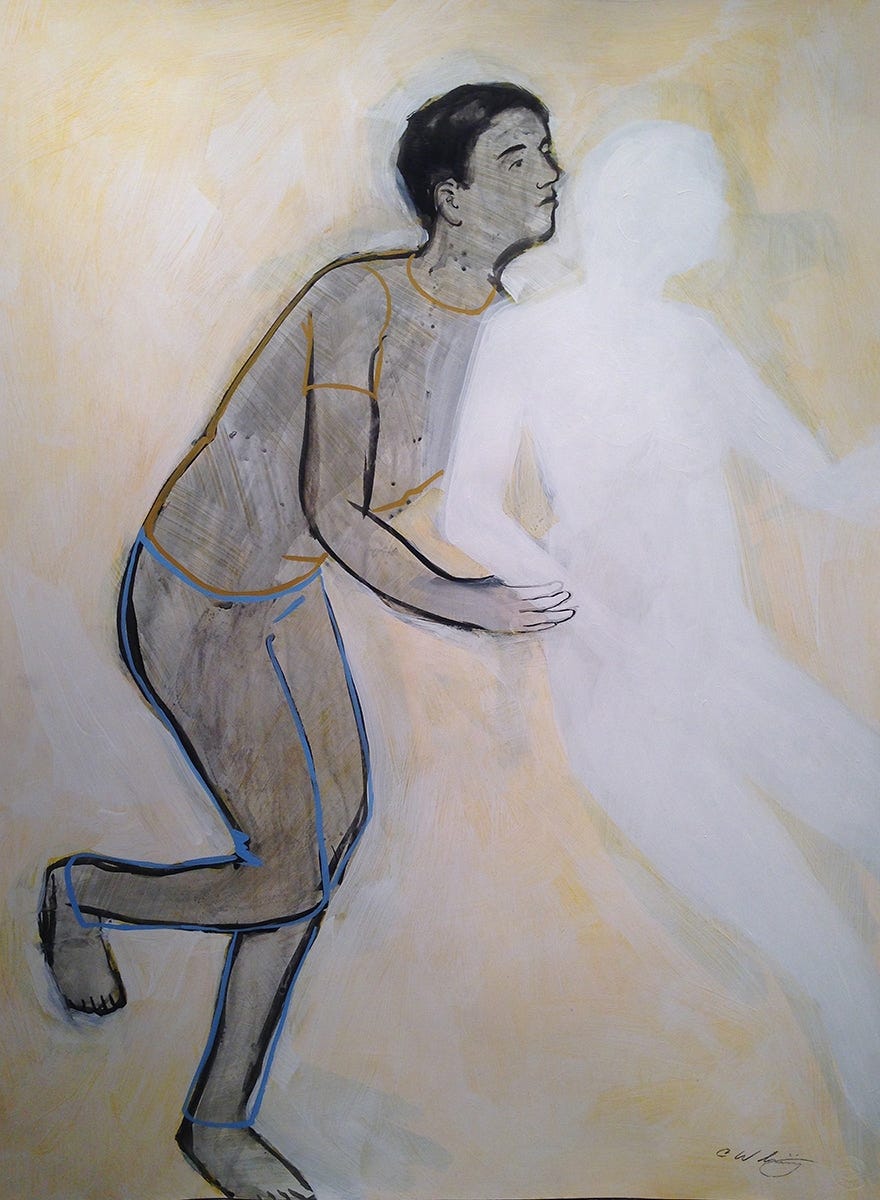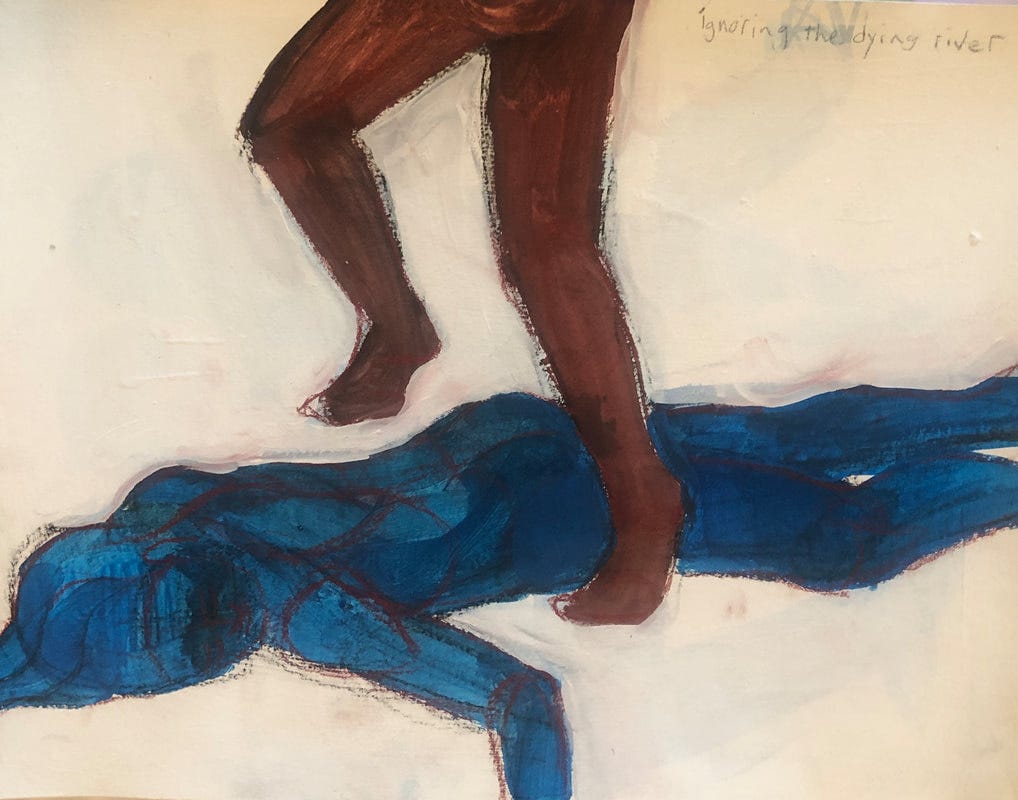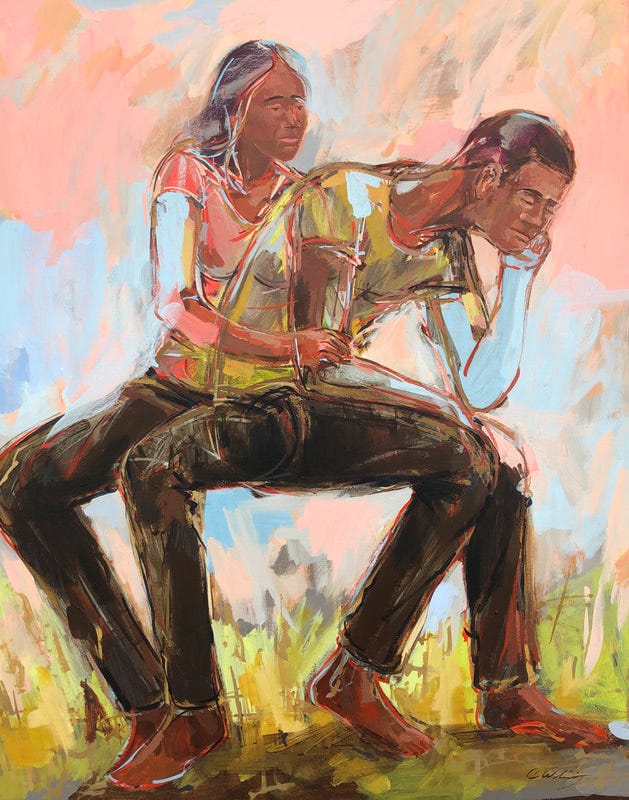Loving Like the Savior
Annual Chaplains' Training Seminar: October 8, 2024
On a train to Fulton, Missouri, in 1946, where Winston Churchill would deliver his famous “Iron Curtain” speech, President Harry S. Truman is reputed to have said to then–former Prime Minister Churchill that “Clement Attlee came to see me the other day. He struck me as a very modest man.” To which Churchill reportedly replied, “He has much to be modest about.”
I can’t help feeling some kinship with Mr. Attlee: I was a psychology undergrad, but my career has been in finance and thus I have no professional credential to recommend me as a chaplain. What I can offer, I hope, is the life experience of one who has felt the Savior’s love. It has been the great fortune of my life to associate with individuals who, having likewise felt the love of God, have worked tirelessly and selflessly to share his love with others. Some of these wonderful people have played important ministerial roles in my life. Some are the members of my own family. Through a lifetime of interactions with my parents in particular, I have come to see intimations and reflections of our Heavenly Parents.
Three questions posed by these mentors and ministers at various times have been particularly impactful in my life, and I pray that they might be useful to you as you care for our siblings in the heavenly family. I recognize that your service is given to all who seek it, regardless of their own denomination or belief. So, while I aspire to be an ever more consistent disciple of Jesus Christ, I pray that the Spirit will help you consider ways my Christ-centered remarks might be useful to those who may not have found faith in him yet.
I.
The first question, and from observation in my life and in others’, the question that lies at the foundation of personal spiritual growth is this: Have you had a personal experience of the love that our Heavenly Parents and the Savior have for you?
Having been raised in a home and among an extended family deeply converted to Christ and his restored gospel, I believed what I had been taught about my identity as a beloved child of Heavenly Parents and how their great love provided a Savior who is our Plan of Happiness. But for me, it was through engaging in a very private wrestle from about age twelve with the increasing awareness of my emotional, social, and physical same-sex orientation that I personally experienced divine love. For the first decade of my wrestle, my fasting, prayers, and pleading were that God would change me, or as I have come to feel in retrospect, put a different spirit into my body so that what I considered a critical flaw would be removed. It wasn’t until after a mission and a very short-lived marriage that instead of telling Heavenly Father what I wanted him to do, I finally and simply asked, “Do you know who I am?”
The gift I received in response has been repeated at various times along my journey and is a critical baseline that buttresses my desire to follow and serve Christ. Interestingly, in my life those feelings of loving awareness have sometimes come when, by some reckoning, I would not have been “worthy” of that love. This has helped me to learn of both earthly and heavenly parents in crucial ways; the love from heavenly parents is unqualified and always beckons us to draw nearer to them, and earthly parents can reach toward that same kind of love. As we minister to one another, this is an urgent lesson: There is nothing about ourselves that we can or need to hide from God. Can we even imagine there is anything he does not know about us, about our past, present, and future? Both his knowledge and his love are perfect, and in the confidence borne of that knowledge, we can also let go of concern for how those around us perceive us.
Our family shares delight in an experience that helped us to understand the cost of caring about trying to impress the neighbors. My wonderful brother Greg finds joy in learning and sharing church history and doctrine. Well, before there was the man, there was the boy!
My parents and their five sons lived in New Jersey, and each summer we would make the trip to Utah to visit our grandparents. This was when air conditioning in cars was a rare and expensive option. So you can imagine the seven of us in a Chevrolet Bel Air crossing Nebraska in July. This particular year, Greg decided that if we all rolled up our windows, people in other cars would think that we were among the lucky few who had air conditioning. As the car became a sauna, Greg allowed that maybe survival was more important than impressing the strangers driving by. This experience provides one way of learning that “keeping up appearances” comes at a cost!
One of the ways that Jesus taught us to understand that appearances don’t matter—especially in our efforts to learn to care for one another as he does—is found in the very familiar parable of the Good Samaritan. Let’s turn to Luke chapter 10, beginning with verses 25–30:
And behold, a certain lawyer stood up, and tempted him, saying, Master, what shall I do to inherit eternal life?
He said unto him, What is written in the law? how readest thou?
And he answering said, Thou shalt love the Lord thy God with all thy heart, and with all thy soul, and with all thy strength, and with all thy mind; and thy neighbour as thyself.
And he said unto him, Thou hast answered right: this do, and thou shalt live.
But he, willing to justify himself, said unto Jesus, And who is my neighbour?
And Jesus answering said, A certain man went down from Jerusalem to Jericho, and fell among thieves, which stripped him of his raiment, and wounded him, and departed, leaving him half dead.
We note that Jesus didn’t provide any information at all about the wounded man. He didn’t tell us whether the man was a pillar of his community or if he was himself a thief. He didn’t tell us if he was a member of a rival gang or if he was the rabbi of a congregation. He didn’t say if the man was stricken in years or young and vigorous. He didn’t tell us whether the man tried to defend himself, if he lashed out in response, or if he tried to defuse the situation with soft words.
All Jesus told us is that he was wounded, left half dead. And very obviously in mortal peril unless someone came along willing and able to care for him. I imagine the lack of biographical information about this man was intentional: Jesus wanted us to focus on the man’s circumstance rather than his history. He wanted to give us the way to be his hands of mercy to all those we encounter.
As President Jean B. Bingham has taught, “One of the most significant ways we can develop and demonstrate love for our neighbor is through being generous in our thoughts and words. Some years ago a cherished friend noted, ‘The greatest form of charity may be to withhold judgment.’”
After having been away from the church for a couple of decades, about twelve years into what would become a nineteen-year relationship with my partner, Clarke, in the circumstances of a very fulfilling professional and personal life, I increasingly felt the desire to also invest more effort in my spiritual life. I began to attend the local ward where we were living in New Canaan, Connecticut. There is much to be said about my experience over the next seven years as the “most active nonmember” of the ward, but for our purposes right now, one thing I would share is that week after week and year after year, as I walked into that chapel hundreds of times, the wonderful Saints there came to know me very well and also to welcome my partner when he joined me. I never felt that they needed to see a demonstration of my progress, nor that they ever withheld their welcome. Rather, it seemed to me that they were delighted that I would, and that perhaps my partner would, have a desire to join them in the journey of discipleship. Their willingness to let the Lord prevail in my life, in his timing and his way, was to have profound implications for my journey.
Victor Frankl, the great Austrian psychologist who was interned by the Nazis in several concentration camps, afterward recalled that from this horrific experience he and other survivors learned the critical lesson, “We needed to stop asking about the meaning of life, and instead to think of ourselves as those who were being questioned by life—daily and hourly. Our answer must consist, not in talk and meditation, but in right action and in right conduct. Life ultimately means taking the responsibility to find the right answer to its problems and to fulfill the tasks which it constantly sets for each individual.”
To think of ourselves as those who are being questioned by life.
In order to rise to those questions, the foundational knowledge that we are seen, known, and loved by Heavenly Parents and the Master Healer, Jesus Christ, is essential. That personal knowledge gives confidence and peace to move forward.
And then, like the Saints of New Canaan, and like Frankl and his peers, we can show our determination to respond to the questions of our lives—to fulfill a key task of discipleship—by becoming people who truly see others and provide life-sustaining support in times of need. In our efforts, hearts and minds may be opened to allow the Holy Spirit to work, witnessing of Christ and his perfect mercy, knowledge, and love. When those we serve have the courage to ask whether God knows them, my experience tells me Heavenly Father delights to answer this question through his Spirit.
II.
A second question that has been helpful to me has been “What is the next good thing that you can do?”
Embedded in the question is the reality that we can only start where we are. Not looking backward and feeling that we may be in too deep to change course, not looking forward and failing to see perfection, but right here and right now, what is the next good thing each of us can do?
This approach can be an antidote to both scrupulosity—the question is not what is the best thing you can do, it is simply what is the next good thing—and to feeling hopeless, like nothing we do will matter. In Elder Dieter F. Uchtdorf’s timeless phrase, we can “lift where [we] stand.”
I was living in San Francisco in the mid-nineties when a new class of antiretroviral drugs became available and turned AIDS from a death sentence into a treatable chronic condition, a little over a decade after the disease had been identified and more than a hundred thousand people had died. Many groups formed in the gay community across the country to try to assist and sustain one another as the plague spread. One group that I came to know in the Bay Area was called the Harm Reduction Coalition. Their focus was to distribute condoms and sterile needles, with the philosophy that every person at risk might not be able to change dangerous behaviors instantly, but each could choose to take a better and safer approach right now. When we help others focus on “the next good thing” in our ministering efforts, individuals may feel guided in ways they can turn to Christ right now even while other desirable changes in their lives may take place over a much longer period of time. And fortunately, we are not called to judge whether their progress is fast or slow or even sufficient. We are given the gift of simply sharing burdens and rejoicing at every “next good thing.”
I have always felt an affinity for the Samaritan woman at Jacob’s Well. Her thorny life, her near-immediate recognition of the Messiah, and her urgent missionary efforts beckon to my heart. Clearly, Jesus’s visit with her did not occur by accident. His appearance at midday, when she would come alone to fetch water, allowed him to share with her, and all of us, his message of Living Water. When Jesus lets her know that he knows about the difficulties in her life (five previous husbands and a current companion to whom she is not married), her immediate reaction is not to rationalize or justify. I’m guessing that life could be hard for a single widow in Samaria, that the help of her companion might have been all that kept a roof over her head. It might have been tempting for her to try to explain her circumstances, but rather, she simply states her recognition that he is a prophet.
One thing that I find deeply meaningful is that, as both of them recognize the imperfections in her life, the shortcomings of her current situation, Jesus chooses this moment and this woman to give the first clear declaration in his earthly ministry of his divine role. When those to whom you minister wonder whether God will help them in their own imperfections and shortcomings, perhaps this memory of the Samaritan woman at Jacob’s Well will come to your mind, and your reassurance will carry the weight of certainty.
And for this woman in this setting, nothing else matters to her, not even the water jug she has come to fill. She does not quietly keep to herself the knowledge that the Messiah has come, but she runs to her village to testify and share what she has learned. Jesus then spends two days teaching and converting these people whom the Jews considered Gentiles. His love opened new possibilities in the woman’s life and in the lives of a whole village.
The next good thing that she could do was to joyfully and instantly share her witness that the long-awaited Messiah was among them. That good thing was likely followed by many, many other good things, but the scriptural record is content to allow us simply to view her acceptance, joy, and instant action in the moment.
III.
Finally, the third question, posed by an insightful church leader is: “What is the Lord saying to you?”
Elder David A. Bednar, echoing the teachings of Nephi, has said, “Endowed with agency, you and I are agents, and we primarily are to act and not just be acted upon. . . . You and I have the power to act and to choose.”
Years ago, when I was coming of age and wrestling with the realization that I was different from my brothers in a fundamental way, the language from social scientists and across the pulpit suggested that being gay was a choice, that with work and faith one could make a different choice, to be straight. Fortunately, in both science and in churches our understanding has increased. So, rather than being distracted by a reality in my life, I gratefully have been able to focus on the true choice of mortality. Each of us and everyone we encounter and minister to are equally at liberty to choose to know and follow Christ.
In our ministering efforts, we affirm the power of each person to hear the Lord speaking to them in their individual circumstances, in their own lives, and to act rather than to be acted upon, to seek and act on direct guidance rather than passively waiting for someone else to give them answers and step-by-step instruction. Asking our friends what the Lord is saying to them is an indication of our confidence in their capability to ask and receive. It shows we believe that when they knock, the doors will be opened to them, personally.
President Brigham Young powerfully made the point as he related a dream in which Joseph Smith appeared to him in February 1847:
“Tell the people to be humble and faithful and [be] sure to keep the Spirit of the Lord and it will lead them right. Be careful and not turn away the small still voice; it will teach [you what] to do and where to go; it will yield the fruits of the kingdom. Tell the [Saints] to keep their hearts open to conviction so that when the Holy Ghost comes to them, their hearts will be ready to receive it. . . . Tell the [Saints] if they will follow the Spirit of the Lord they will go right.”
The wise church leader who asked what the Lord was saying to me also said that he had wrestled in prayer over a period of time to know what he could most helpfully say to me as I was seeking counsel. He said the clear feeling he received was that the Lord loved and trusted me. He continued, “The Lord isn’t going to give your answers to me, but I also love and trust you and am eager to help in any way that you would find useful.”
His approach ensured that my agency and accountability were not somehow transferred to him. His trust and the Lord’s trust that I would be able to discern the most helpful approach to decisions in my life empowered my growth and learning.
This way of honoring agency and accountability was demonstrated by Jesus as he was thrust into contact with a mob and a woman caught in adultery, recorded in the Gospel of John. Let’s remind ourselves how he responded.
First, before anything else, he acted to save the woman’s life. His challenge to her accusers silenced them immediately as they considered whether they were without sin and thus in a position to righteously judge. “And they which heard it, being convicted by their own conscience, went out one by one, beginning at the eldest, even unto the last: and Jesus was left alone, and the woman standing in the midst” (John 8:9).
No stones were thrown, her mortal life had been redeemed.
Second, he neither berated nor castigated. He came to her in her moment of greatest despair and need, having drawn the hostile attention away from her toward himself. Now alone with her, he honored her with simple candor, helping her see where she stood in that moment: “Where are those thine accusers? hath no man condemned thee? She said, No man, Lord. And Jesus said unto her, Neither do I condemn thee” (John 8:10–11).
What a gift, in that awful moment, was his assurance that he, the only perfect judge, did not condemn her.
Third, and finally, he gave her hope. Implicit in his charge, “Go, and sin no more,” was confidence in her capacity to do so (John 8:11). It demonstrated his expectation of her ability to act rather than to be acted upon, his knowledge that she had within herself the resources and faith to do so. She would have the opportunity, as do we all, to recognize the goodness within her that he saw and to turn her life in a direction that would ultimately lead to his presence. The circumstances of her life in that society may have made it very difficult for her to follow his counsel, but because he honors desires as well as actions, her soul could be aligned with his.
This woman knew very directly what the Lord was saying to her. In my life, I likewise have learned that I can hear him. In the midst of my own failures and challenges, I can find hope. You have had similar experiences. And in your ministry, you too can save lives, refuse to condemn, and convey the hope to be found in him. Perhaps even more importantly, you can share your confidence that each person can know for themselves, in their own circumstances and challenges, that the desires of their hearts can be fulfilled because they too can hear him.
I pray that in your service to those who are indeed our brothers and sisters in the family of heaven, you will ask questions that encourage the personal experience of divine awareness and love, focus on present possibilities to do good, and manifest confidence in each individual’s abilities, agency, and accountability. Doing so will bring both you and each of these siblings to more deeply experience the goodness of our God and His mercy, grace, and infinite love. As President Russell M. Nelson has testified, “The Savior’s message is clear: His true disciples build, lift, encourage, persuade, and inspire—no matter how difficult the situation.”
I am grateful for those who have ministered on my behalf, for all those who have pointed me toward Christ. Above all, I am in awe of his goodness, his patience with me, his mercy toward all of us. I am certain that he is real, that his life, teachings, sacrifice, and resurrection are real. I have felt his love, and with you, desire above all else to be able to share that love with all we encounter along life’s road. May his power and blessing be with each of you in your ministry, I pray in the name of Jesus Christ, amen.
Tom Christofferson currently serves as a gospel doctrine teacher in his Mesa, Arizona ward. He has published two books with Deseret Book: That We May Be One: A Gay Mormon’s Perspective on Faith and Family (2017) and A Better Heart (2020).
Art by Clinton Whiting.






